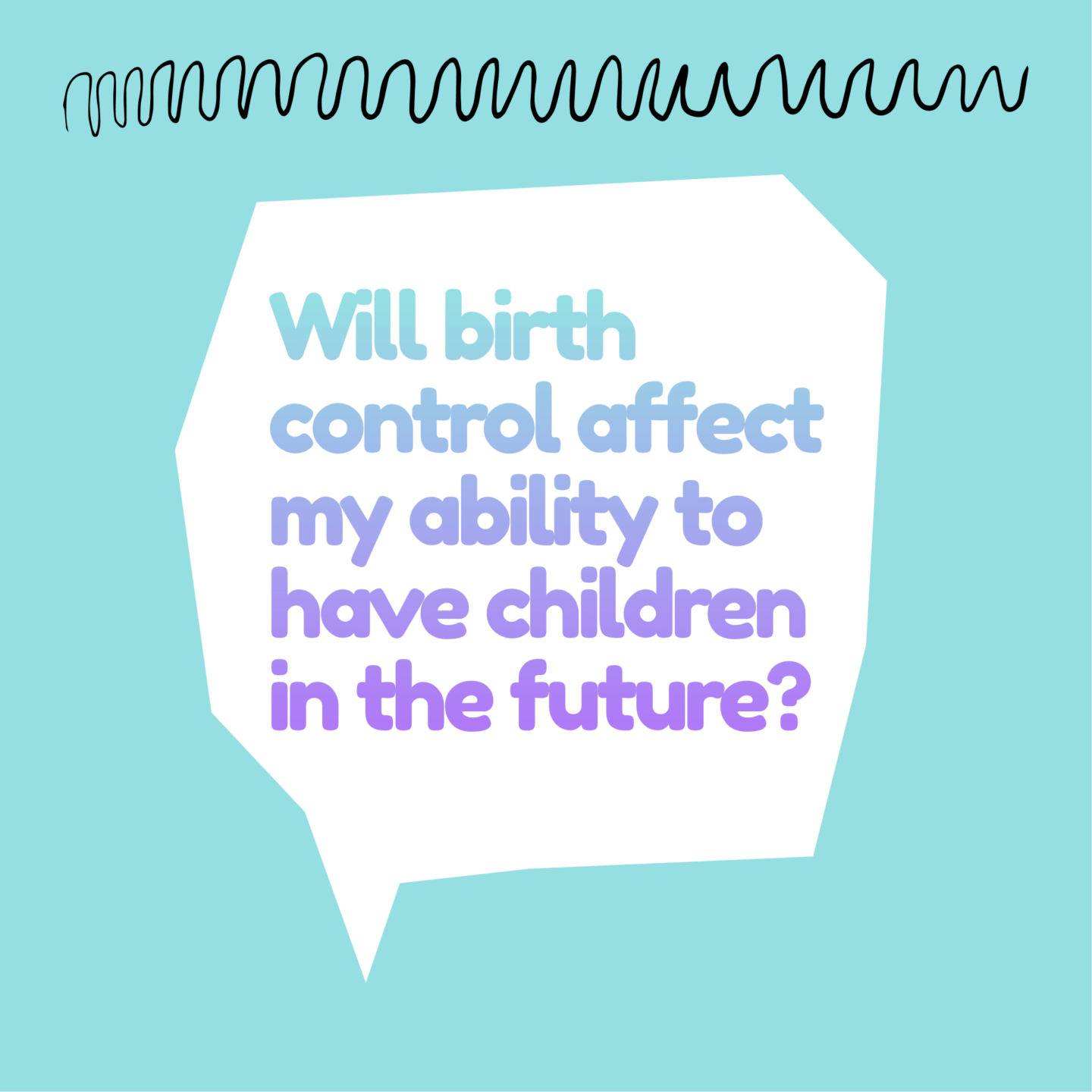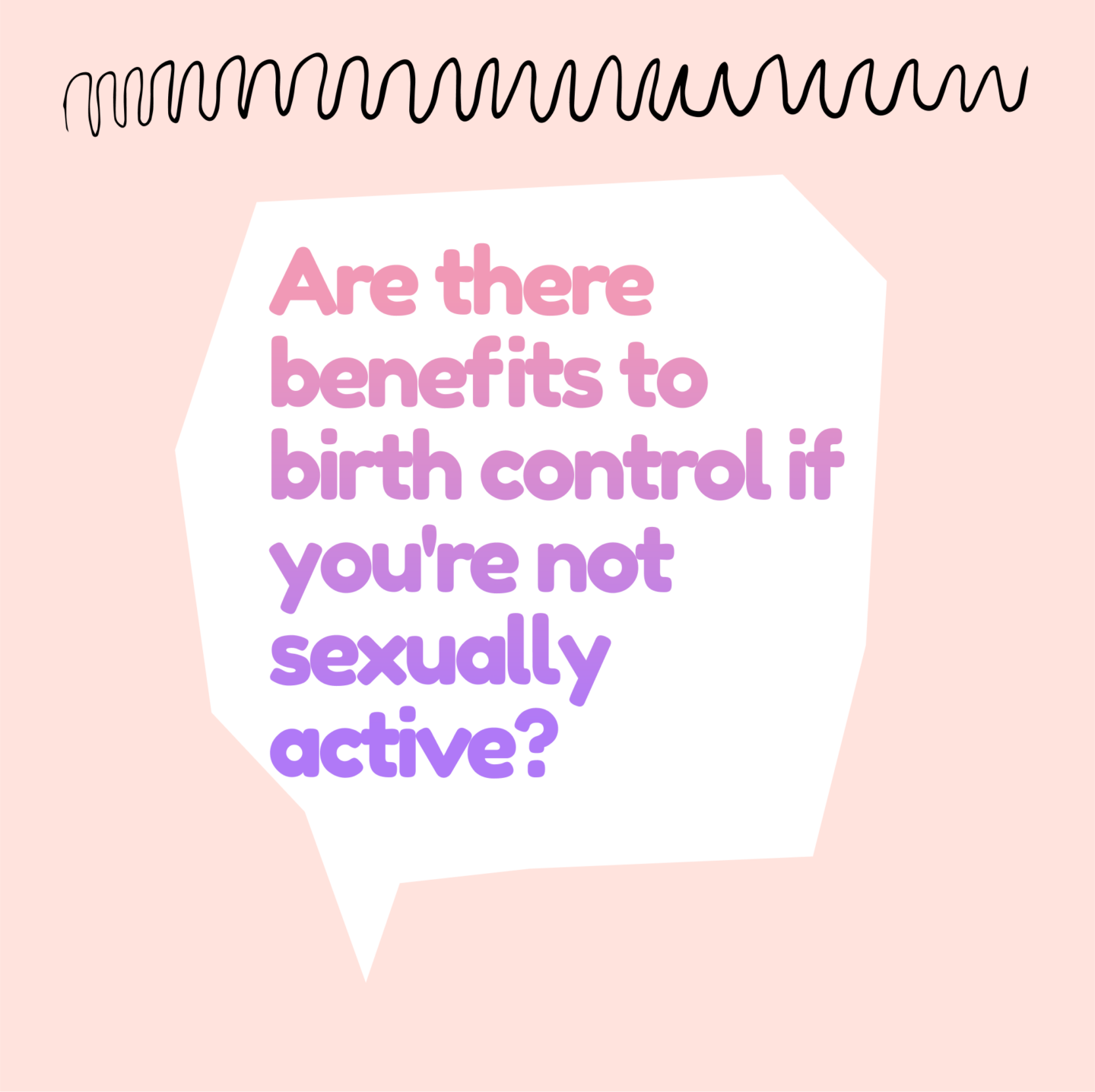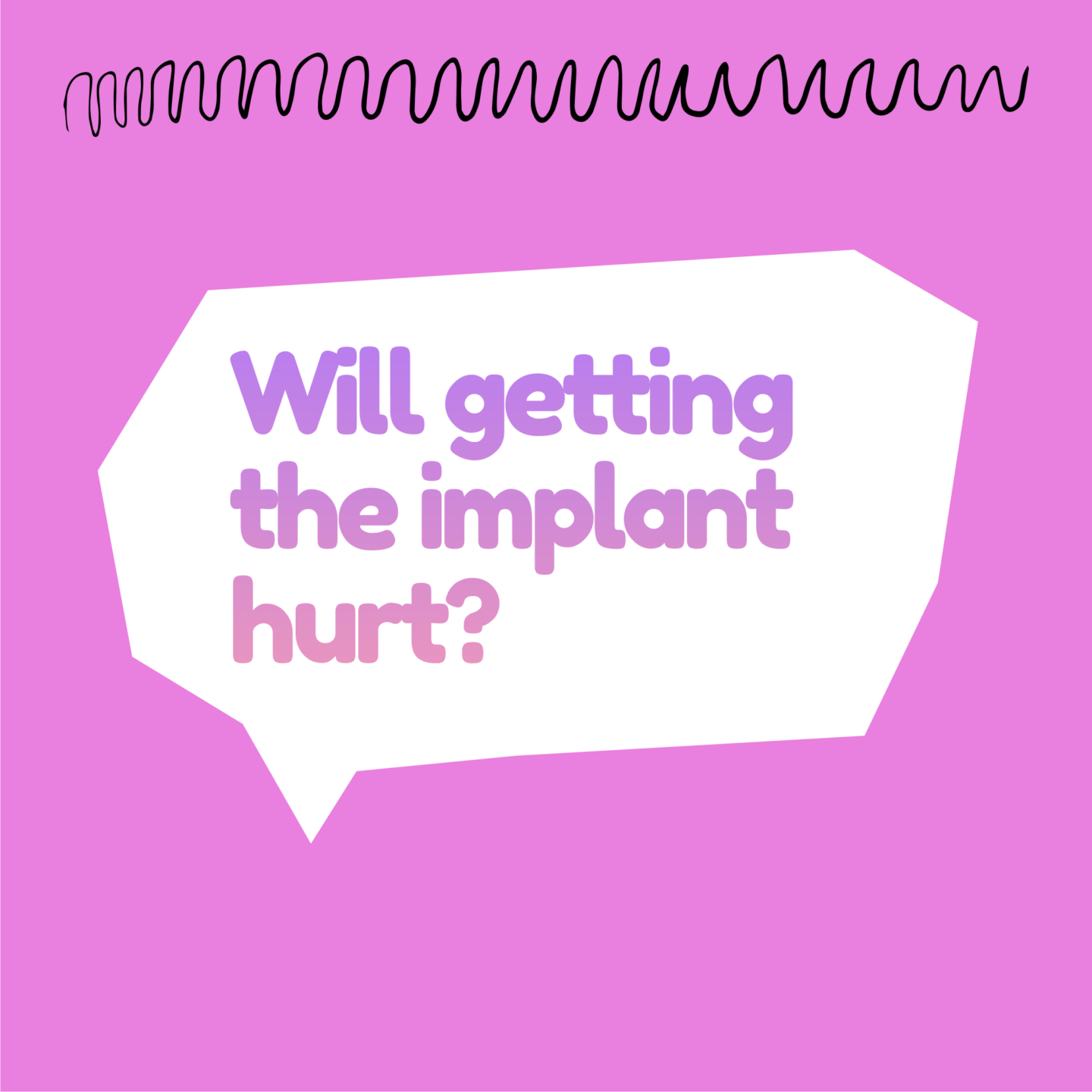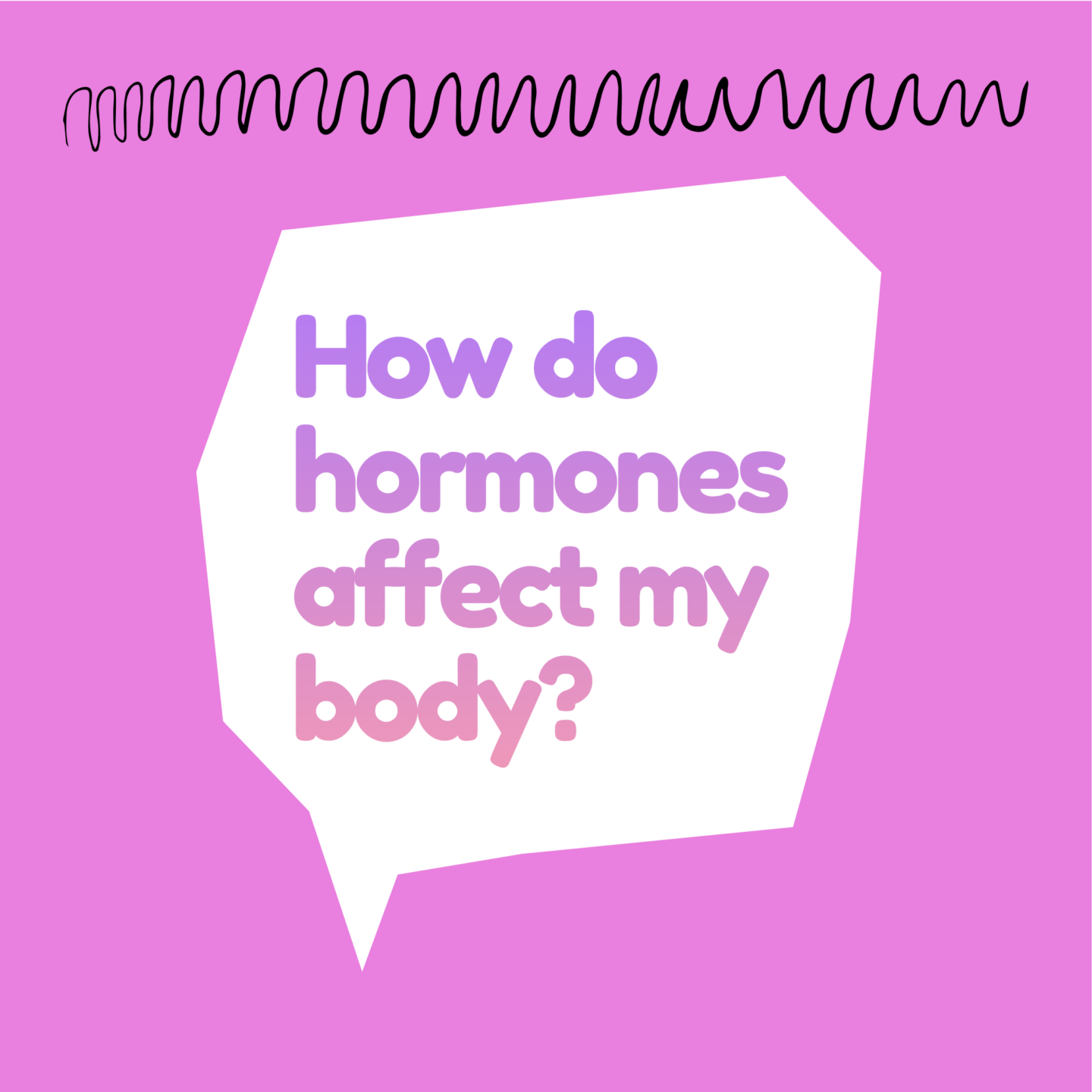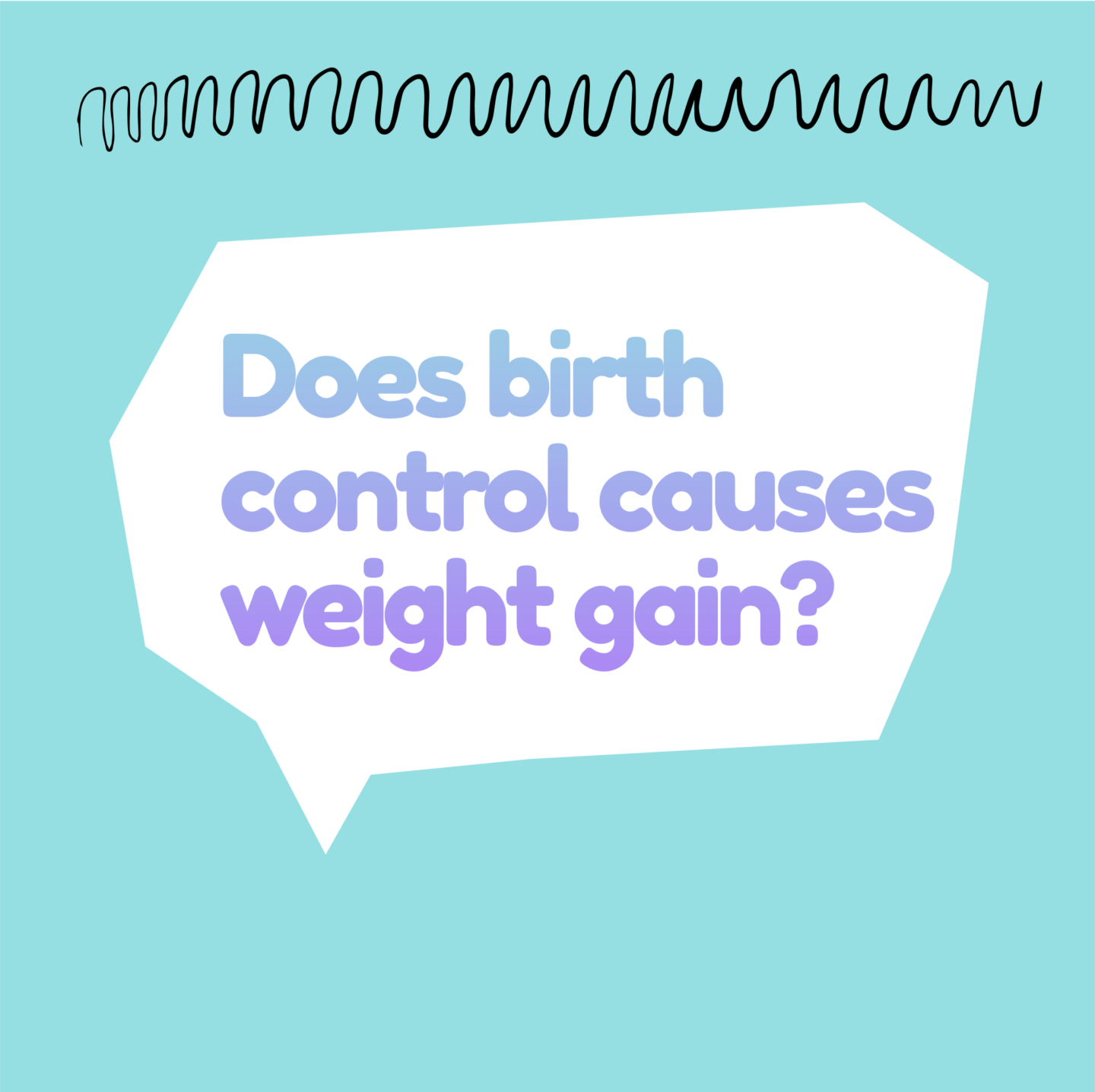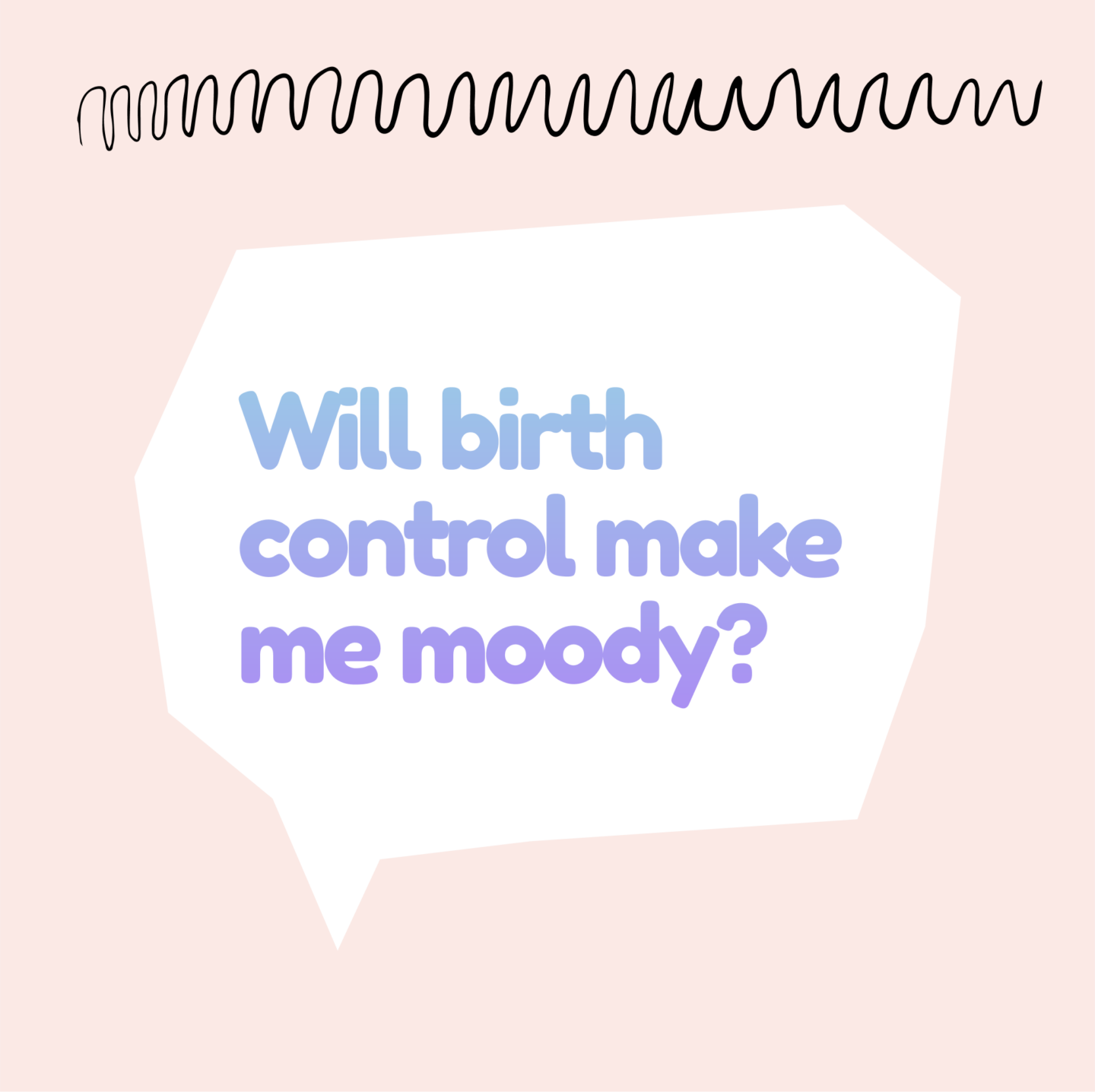Most Commonly Asked Questions
We talked to women all over Dallas to understand what were their questions and concerns around birth control and more.
Birth Control Basics
There are some forms of birth control other than a pill. They include the copper Intrauterine device (IUD) effective for 10 years, a hormonal IUD effective for 3-8 years, and an arm implant (effective for 3 years). These methods of birth control can prevent unintended pregnancy much better than other methods of birth control.
You may also consider the “Depo” or Depo-Provera shot that prevents pregnancy for 3 months. It is super effective when used perfectly, and is safe. The vaginal ring (which requires a prescription) works a lot like the birth control pill, but does not require daily pill consumption. It is a jelly-like ring that you insert into your vagina 3 weeks at a time. The birth control patch is a small sticker you adhere to your skin for 1 week at a time, and similarly to the vaginal ring, doesn’t require the work of taking a daily pill.
For more information, refer to our Birth Control Methods brochures, or Bedsider.org.
Considering when to start birth control is an important decision that can impact your well-being and future. Using birth control is safe so long as you’ve started your period. Consider visiting a provider to explore birth control if:
- Having reproductive health issues: Experiencing irregular periods, severe period-related pain, excess acne or hormone de-regulation, and other difficult, period-related symptoms.
- Dating: If you begin dating, consider birth control to ensure you are safe should you decide to engage in sexual activity.
The insertion of an IUD (intrauterine device) will be different for everyone, but going to a trained health care provider will ensure you have a safe experience. Some people may have pain or discomfort with the insertion of the speculum into the vagina. The insertion of the IUD itself can cause cramping and/or pain. Your medical provider may prescribe prescription strength Ibuprofen after the IUD insertion to help with any pain, discomfort or cramping. For most women, any cramps or discomfort will subside within a few weeks. Some women experience cramps on and off for a few months after the IUD insertion. If you have serious pain or other concerns about the process, you can speak to a trusted adult or medical professional. More information on IUD insertion can be found at Bedsider.
The IUD sits inside the uterus and is very safe. It is extremely rare, but possible, for an IUD to poke the side of the uterine wall and travel. The arm implant sits right under the skin of your arm and can move slightly one way or another, but for most patients stays right where it is! Both of these methods are very safe to use.
Besides the copper IUD, non-hormonal forms of birth control include: “barrier” methods such as the male condom, internal female condoms, diaphragm (over-the-counter birth control spermicide sponge that you insert into your vagina before you have sex), spermicide creams, films, foams, gels, and suppositories; and fertility awareness or natural family planning (which includes tracking your menstrual cycle to understand when you can get pregnant). This last method is very tricky, especially if you are irregular, requiring you to pay very close attention to your body and its patterns over time. Explore all the methods on our website or Bedsider.org and talk to your doctor.
When deciding on which type of birth control is best for you, consider:
Your age and health history: Some contraceptive options are not safe with certain health conditions.
Side effects: Everyone reacts differently to different types of contraceptives. The first type you choose (for example a specific brand of birth control pills) may not always be the best fit for your body. It may cause uncomfortable side effects at first. That’s ok and it’s common. It’s important to not give up and to be open to explore other options – there are many brands of birth control pills or alternative contraceptives, and your health provider can help you find a better one!
Whether they prevent sexually transmitted diseases: Most forms of hormonal contraceptives do not protect against sexually transmitted diseases or infections (STDs & STIs). It is recommended to pair a condom with the use of a birth control pill (or other hormone contraceptive) for the best protection against both unwanted pregnancies and STDs/STIs.
The effectiveness of the birth control in preventing pregnancy: Most contraceptives are highly effective at preventing pregnancy only if used correctly as instructed. Consider whether your lifestyle allows you to use these methods to achieve the maximum effectiveness. (The effectiveness of each method is worked out by calculating how many women get pregnant if 100 women use the method for a year. For example, if a particular contraceptive method is 99% effective, 1 woman out of every 100 who uses it will get pregnant in a year.)
Bedsider has a tool to help you compare different contraceptive options.
Many young women who are not sexually active choose to use birth control for a variety of reasons — some not even related to pregnancy prevention. Reasons may be related to reducing heavy menstrual bleeding, cramping or acne. If you’re considering sexual activity or have been sexually active in the past, being on birth control is a smart decision.
Its been proven that birth control can help prevent or lessen: acne, bone thinning, cysts in your breasts and ovaries, serious infections in your ovaries, fallopian tubes, and uterus, iron deficiency (anemia), and PMS (premenstrual syndrome).
SOURCE: Medical News Today, 2023
Privacy, Access and Cost
No, in Texas it is law that minors under the age of 18 need parental consent to get birth control. There are a few methods that you can get without parental permission – these include internal and external condoms, spermicide, and the emergency contraceptive pill. If you’d like support in talking to a parent, check out our resources on getting parental consent.
Yes! In Dallas there are many teen friendly clinics that will provide free or very low cost services to teenagers. These clinics are called Title X clinics. When you call the clinic to make an appointment, just let them know you aren’t going to be using insurance and you’ll need assistance covering the cost of your visit.
You can find a list of these clinics in your area that will provide free services here.
There are several resources for free condoms. Health departments and other family planning clinics are great sources for free condoms. In schools, your school nurse or counselors may be a good resource to help you connect with free condoms. There are also condom companies that may send you free samples.
To find free condoms near you, check out Condom Finder.
You can buy condoms at any age. In the United States, minors may purchase condoms just like legal adults can.
To make an appointment at a clinic, choose the clinic you’d like visit using our Clinic Finder. Tell them you’d like to make an appointment for birth control. If you know what type you’re interested in you can let them know, or say you’d like to talk more with a doctor about your options. They may ask you some questions such as your name, birthday, and other personal information. If they ask anything you don’t know the answer that’s okay, just say you don’t know and you will still be able to make the appointment.
If you’ve ever been to a check up with a doctor, this won’t be much different! After checking in with the front desk and providing some information, you’ll see a medical professional like a nurse first who will take your vitals and ask some questions about why you’ve come to the clinic today. Afterwards, you’ll have time with the provider – this medical professional will answer all of your questions about birth control, counsel you on all your options, and help you come to a decision about the best birth control method for you and your life If you’re under 18, your parent or guardian will have to provide consent for a birth control prescription. This could include signing a form for you, giving consent over the phone, or accompanying you to the clinic. .Anything you tell the provider will remain confidential, judgment-free, and private. Feel free to be as honest and open with them as you like. After you’ve selected a birth control method, you should always feel okay calling your doctor with any follow up questions or concerns over side effects.
If you are worried about visiting a doctor in person or don’t have the ability to do so, there are many options to get birth control online! Check out our clinic finder to see online telehealth options that might make you feel more comfortable with the provider from the safety of your own home.
Source: Bedsider, 2019
Side Effects of Birth Control
Contraceptives do not affect your ability to have babies when you’re ready for them. Your body resumes its natural reproductive functions as soon as you stop taking using your chosen birth control method. The one exception is the depo shot, which may delay your return to normal fertility for up to 10 months depending on the person.
A 2011 study by Oregon Health and Science University, Portland compared pregnancy rates following the use of various forms of hormonal birth control. Overall, pregnancy rates were similar among previous users of birth control and those who had never used it.
SOURCE: Medical News Today, 2023
Weight gain is one of the most common concerns when starting birth control. In past decades, hormonal birth control may have caused some people to gain weight because it contained significantly higher amounts of estrogen and progesterone. However, this is not the case with most current combination hormonal birth control.
A 2016 Cochrane review of 22 previous studies found little or no evidence of weight gain. Even among studies that did show slight increases in weight, the average weight gain was only 4.4 pounds.
SOURCE: Medical News Today, 2023
There are benefits for some who may want to skip periods. It may help for those with heavy, painful periods, prevent menstrual migraines, reduce acne, and lower the risk of certain cancers or ovarian cysts.
SOURCE: Cleveland Clinic, 2023
The pill is sometimes prescribed for people who report severe mood swings with the flow of their monthly hormones!
SOURCE: Bedsider, 2019
There is no medical need to take a break from birth control. Your body does NOT medically need a “detox” nor does your system need to be “cleaned out” after prolonged hormonal birth control use. Even if birth control affects your periods, it does not mean you need a break to return to your natural period flow.
The truth is, the hormones in birth control are out of your system so quickly after you stop birth control that you can get pregnant immediately after you stop taking birth control!
SOURCE: Bedsider, 2019
Hormones in some birth control methods are similar to those produced naturally by the female body. In general, when on the pill, the female body makes less of its own hormone; this is how it prevents pregnancy. Depending on the method, hormones can prevent the release of an egg, make it harder for a fertilized egg to stick to the uterus, and can thicken the cervical mucus to stop sperm from passing. For some women, side effects may include changes in menstrual bleeding, breast tenderness, nausea, headaches, mood changes, weight gain, or changes in libido. Not all women experience it, and it can vary depending on the individual and the specific birth control method. If you don’t like the method you’re taking, you may have a different experience with another brand or with other types/amounts of hormones. Any effects of hormonal birth control are reversible, and fertility returns to your personal normal after discontinuing use.
Dr. Lesley Miller at the University of Washington in Seattle points out that “when a woman is on the birth-control pill, every day becomes the same hormonally. The woman has a set dose of progesterone and a set dose of estrogen…” So for people with hormone-driven period disorders or acne, having the same amount of hormone every day can be a good thing. In fact, the pill is often prescribed to treat these disorders.
SOURCE: Bedsider, 2023
Certain types of birth control, particularly combination pills containing estrogen and progestin hormones, can help improve acne by reducing the production of androgens, which contribute to acne. By decreasing androgen levels, these pills can reduce oil production and inflammation in the skin. However, progestin-only contraceptives may have varying effects on acne, potentially improving or worsening it depending on the individual. Birth control can also regulate hormonal fluctuations throughout the menstrual cycle, which can contribute to acne breakouts. It’s important to note that the response to birth control’s impact on acne is individual, and results may take several months to become noticeable. It’s advisable to consult with a healthcare provider to discuss potential side effects and determine the most suitable form of birth control or acne treatment.
Relationships and Boundaries
A boundary is your personal limit. When it comes to relationships and sex, you decide what kind of things you want to do and what things you aren’t okay with doing. Here are some questions that help people think about their own sexual boundaries:
- Am I okay with this person touching me? Over or under my clothes? Which body parts?
- Am I comfortable touching this person? Over or under their clothes? Which body parts?
- Am I okay with this person seeing my body? Partially naked or without any clothes?
- Which types of intimate or sexual activities am I okay with doing with this person?
- How do I want this person to treat me during intimate and sexual activities?
You can change your boundaries when you feel ready. No one should pressure you to do something that crosses your boundaries.
If someone has crossed your sexual boundaries before, there is help available at RAINN. This is an online chat where you can talk to a trained support person and stay anonymous if you want to.
